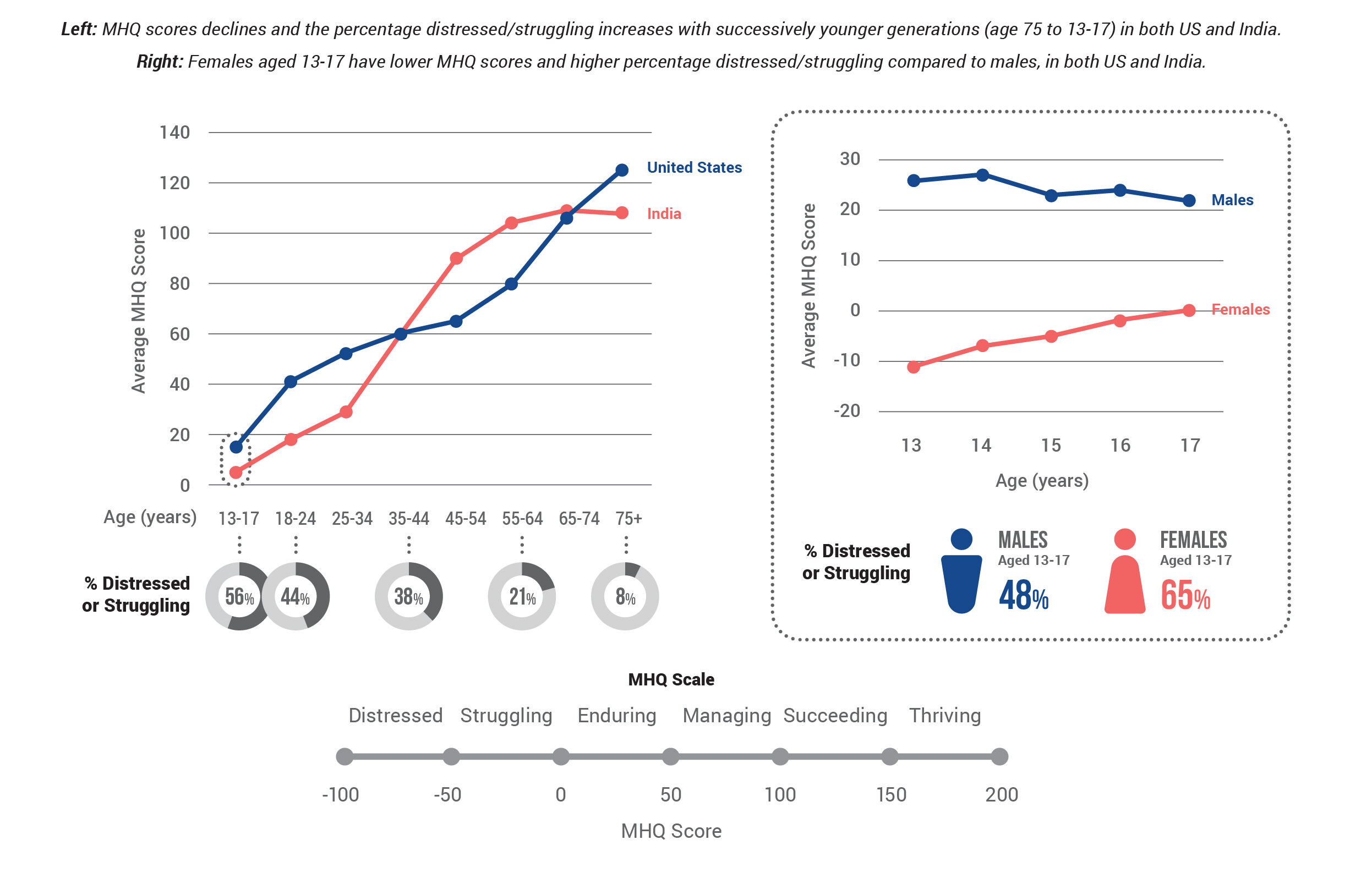Youth Mind: Rising Anger and Aggression, Increasing Suicides and Violence among Adolescents. Sapien Labs Report
- There is a generational decline in mind health and wellbeing that extends into adolescence. Adolescents aged 13–17 fare worse than young adults aged 18-24 who in turn fare worse than those aged 25-34, and so on. The trend is particularly pronounced in girls, where 65% are distressed or struggling in a manner that substantially impairs their ability to function effectively in the world and would be of clinical concern.
- The dominant problems in 13–17-year-olds extend beyond sadness and anxiety. They include unwanted, strange thoughts and a sense of being detached from reality, while the problems that are increasing fastest with each younger age group are feelings of aggression towards others, anger & irritability and hallucinations.
- Rapidly increasing problems of aggression and anger & irritability can in a large part be attributed to the increasingly younger age at which children are now getting a smartphone.
.

MHQ score declines and the percentage of distressed struggling increases with successively younger generations in both the US and India
.
“Swift action is needed to safeguard younger generations from a future marked by increased anger, aggression, and violence. While managing access to inappropriate content and limiting screen time remain challenging, we urge parents at the very least to delay giving their child a smartphone until at least 8th grade or age 13 so as to give them more time to develop healthier social skills and reduce tendencies for anger and aggression,” said Tara Thiagarajan, Founder and Chief Scientist of Sapien Labs.
About the study:
This study is part of the Global Mind Project, an ongoing survey of global mental wellbeing, conducted by Sapien Labs. The project acquired data through an assessment that queries 47 aspects of mental function on a life impact scale to create an aggregate mental wellbeing score, the Mental Health Quotient or MHQ, as well as scores of various dimensions of mental function.
*

No comments:
Post a Comment